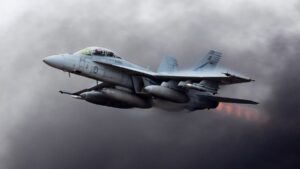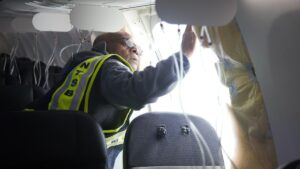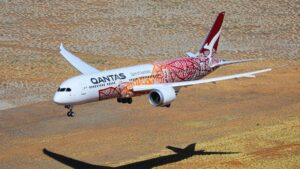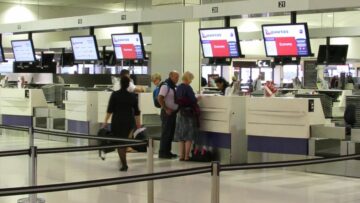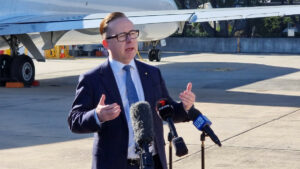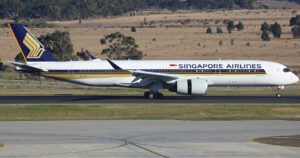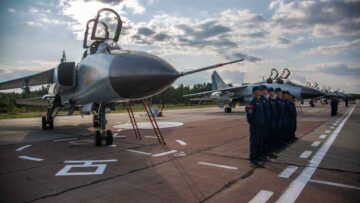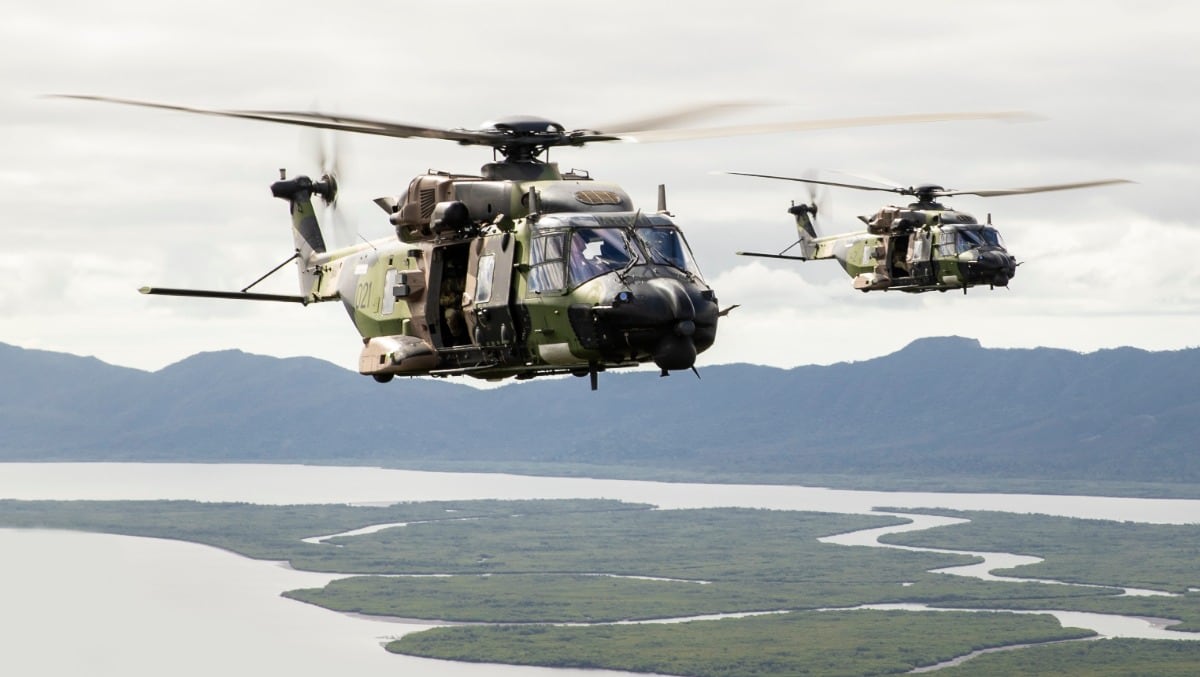
Australian Minister for Defence Industry Pat Conroy has confirmed the current disposal strategy for the Australian Defence Force’s MRH‑90 Taipan helicopter fleet offers ‘best value for money for Australian taxpayers’.
Minister Conroy, speaking on ABC Radio today (18 January), said a global search undertaken by MRH-90 Taipan contractor NATO Helicopter Industries to find buyers for the beleaguered fleet uncovered “zero interest”, before hitting back at public scrutiny over the government’s refusal to send the capability to Ukraine.
“After the tragic crash last year we were faced with a circumstance where the fleet had to be grounded while those crash investigations were undertaken, and they’re still ongoing,” Minister Conroy said.
“The government made the decision to permanently ground the fleet, and in September last year, some months before any request was received, we began the disposal strategy. We then worked with Airbus, the manufacturer of the helicopter, to establish whether there was any existing users that were interested in the air frames, and there were none.
“We then contracted NATO Helicopter Industries to do a global scan of the market to see if anyone was interested in buying the air frames who was a new customer. There was zero interest in buying the air frames.
“Therefore, the best value for taxpayers was to disassemble the aircraft and to begin selling the spare parts. Because the other option would have been to pay hundreds of millions of dollars to Airbus Australia to maintain these aircraft in a flying condition when there was no prospect that they would be flying again for the Australian Army.”
Last year, the Australian government announced that the ADF MRH-90 Taipan helicopter fleet was grounded and would not return to flying operations before their planned withdrawal date in December, following a series of aircraft accidents.
An MRH-90 helicopter crashed south of Hamilton Island while participating in Exercise Talisman Sabre in July 2023, while another aircraft ditched into NSW waters during a routine counterterrorism training exercise in March 2023.
The incidents followed suspended flying operations in June 2021 after issues were found relating to the aircraft’s IT support system, as well as a tail rotor vibration problem identified at HMAS Albatross in 2019.
The Taipan helicopter fleet will be replaced by the accelerated introduction into service of 40 UH‑60M Black Hawk helicopters acquired under the LAND 4507 Phase 1 Multi-Role Helicopter Rapid Replacement Project announced in January 2023.
Those aircraft will be joined by new AH-64E Apache helicopters expected to be introduced into service with the Australian Army in 2025.
Australian Aviation can confirm Taipan disassembly is being conducted by industry partners using standard mechanisms but cannot substantiate rumours that the aircraft will eventually be buried underground.
There are now no Taipan aircraft in flying condition; and spare parts from the helicopters will be sold to existing users of similar variants, Minister Conroy confirmed.
“We’re not the only user of these aircraft that are retiring them; Sweden is retiring theirs, Belgium is retiring theirs, Germany, the biggest user of these helicopters, is constantly complaining about availability,” he said.
“There was no interest in buying the air frames, therefore, the best value for money for the taxpayers was to sell the spare parts and dispose of the air frames.”
Minister Conroy also hit back at public commentary imploring the Australian government retain the Taipan fleet in working order and supply them to Ukraine.
“That request (from Ukraine) came in just before Christmas, and our response is going through the normal process of being developed by the Department of Defence,” he said.
“That request came in three months after the disposal strategy began, three months after these aircraft were grounded, three months after maintenance ceased on these aircraft.
“The aircraft aren’t in flying condition and we have not established whether they’re safe to fly. But a response will be provided through the normal channels to the Ukrainian government.
“We do not know whether they’re safe to fly… to get them into a condition to provide to the Ukrainian government would require considerable taxpayers’ expense and time and resources. And that was not a good use of taxpayers’ money.
“We’re providing $910 million worth of assistance to Ukraine, including ADF personnel training their civilians right now, and we’ll continue to consider requests where they’re appropriate. But I really just find it quite incredible that people are suggesting that we should provide aircraft to Ukraine that we still have no idea are safe to fly.
“To get any up to flying condition would require a huge investment in taxpayers’ funds, time and resources to do that. I should also really make this really important point: we have multiple crash investigations still going on into the tragic accident in Queensland last year. We have no idea whether these aircraft are safe to fly.
“Anyone who suggests that these aircraft have been cleared is lying, and they are making, quite frankly, really offensive suggestions at a time when people are really grieving. So I think it’s really important that those crash investigations keep working to establish the cause of that accident. These aircraft aren’t in a flying condition, and we still do not know whether they’re safe to fly.”
- SEO Powered Content & PR Distribution. Get Amplified Today.
- PlatoData.Network Vertical Generative Ai. Empower Yourself. Access Here.
- PlatoAiStream. Web3 Intelligence. Knowledge Amplified. Access Here.
- PlatoESG. Carbon, CleanTech, Energy, Environment, Solar, Waste Management. Access Here.
- PlatoHealth. Biotech and Clinical Trials Intelligence. Access Here.
- Source: https://australianaviation.com.au/2024/01/disposing-of-taipans-best-value-for-money-says-conroy/
- :has
- :is
- :not
- :where
- $UP
- 1
- 2019
- 2021
- 2023
- 2025
- 40
- a
- ABC
- About
- accelerated
- accident
- accidents
- acquired
- After
- again
- AIR
- Airbus
- aircraft
- also
- and
- announced
- Another
- any
- anyone
- Apache
- appropriate
- ARE
- Army
- AS
- Assistance
- At
- Australia
- Australian
- availability
- aviation
- back
- BE
- because
- been
- before
- began
- begin
- being
- Belgium
- BEST
- Biggest
- Black
- but
- buyers
- Buying
- by
- came
- CAN
- cannot
- capability
- Cause
- channels
- Christmas
- circumstance
- civilians
- Commentary
- condition
- conducted
- Confirm
- CONFIRMED
- Consider
- considerable
- constantly
- continue
- Contractor
- Crash
- Crashed
- Current
- customer
- Date
- December
- decision
- defence
- Department
- developed
- disposal
- dispose
- do
- dollars
- during
- establish
- established
- eventually
- Exercise
- existing
- expected
- faced
- Find
- FLEET
- flying
- followed
- following
- For
- found
- from
- funds
- Germany
- get
- Global
- going
- good
- Government
- Ground
- had
- Hamilton
- Have
- Hawk
- he
- helicopter
- helicopters
- Hit
- hitting
- HTTPS
- huge
- Hundreds
- hundreds of millions
- i
- idea
- identified
- if
- important
- in
- incidents
- Including
- incredible
- industries
- industry
- industry partners
- interest
- interested
- into
- introduced
- Introduction
- Investigations
- investment
- island
- issues
- IT
- IT Support
- January
- joined
- jpg
- July
- june
- just
- Keep
- Know
- Land
- Last
- Last Year
- made
- maintain
- maintenance
- make
- Making
- Manufacturer
- March
- Market
- mechanisms
- million
- million worth
- millions
- minister
- money
- months
- multiple
- New
- no
- None
- normal
- now
- of
- offensive
- Offers
- on
- ongoing
- only
- Operations
- Option
- order
- Other
- our
- over
- participating
- partners
- parts
- Pay
- People
- permanently
- Personnel
- phase
- planned
- plato
- Plato Data Intelligence
- PlatoData
- Point
- Problem
- process
- project
- prospect
- provide
- provided
- providing
- public
- quite
- Radio
- rapid
- really
- received
- refusal
- replaced
- replacement
- request
- requests
- require
- Resources
- response
- retain
- return
- right
- routine
- safe
- Said
- says
- scan
- scrutiny
- Search
- see
- sell
- Selling
- send
- September
- Series
- service
- should
- similar
- So
- sold
- some
- South
- speaking
- standard
- Still
- Strategy
- Suggests
- supply
- support
- suspended
- Sweden
- system
- taxpayers
- that
- The
- their
- Them
- then
- There.
- therefore
- These
- they
- think
- this
- those
- three
- Through
- time
- to
- today
- Training
- Ukraine
- Ukrainian
- uncovered
- under
- use
- User
- users
- using
- value
- was
- Waters
- we
- WELL
- were
- when
- whether
- while
- WHO
- will
- with
- withdrawal
- worked
- working
- worth
- would
- year
- zephyrnet
- zero

